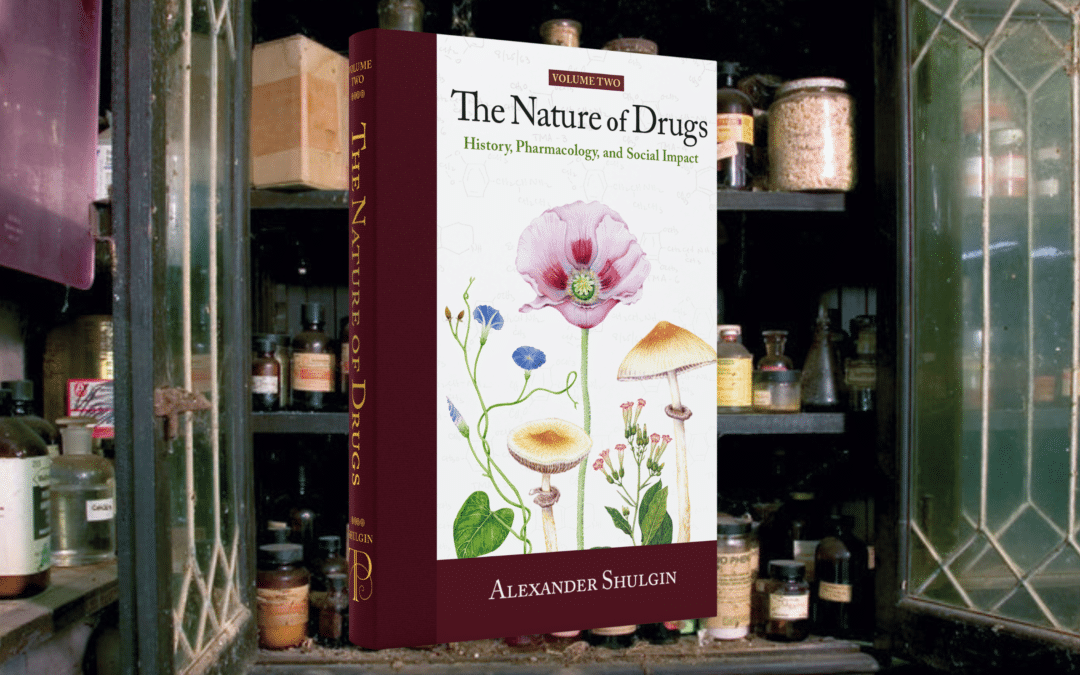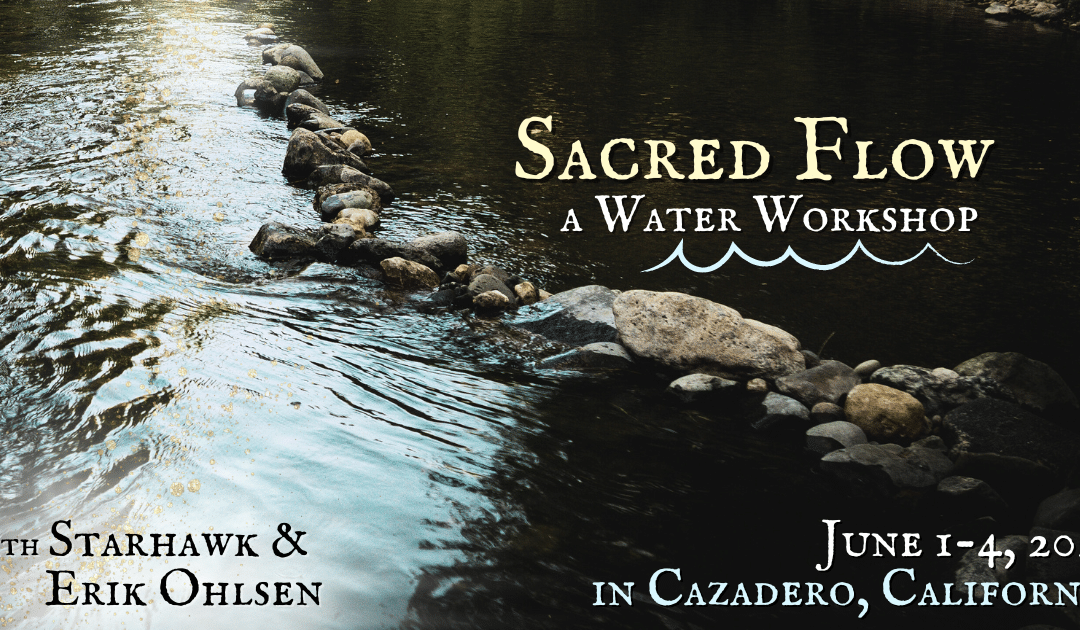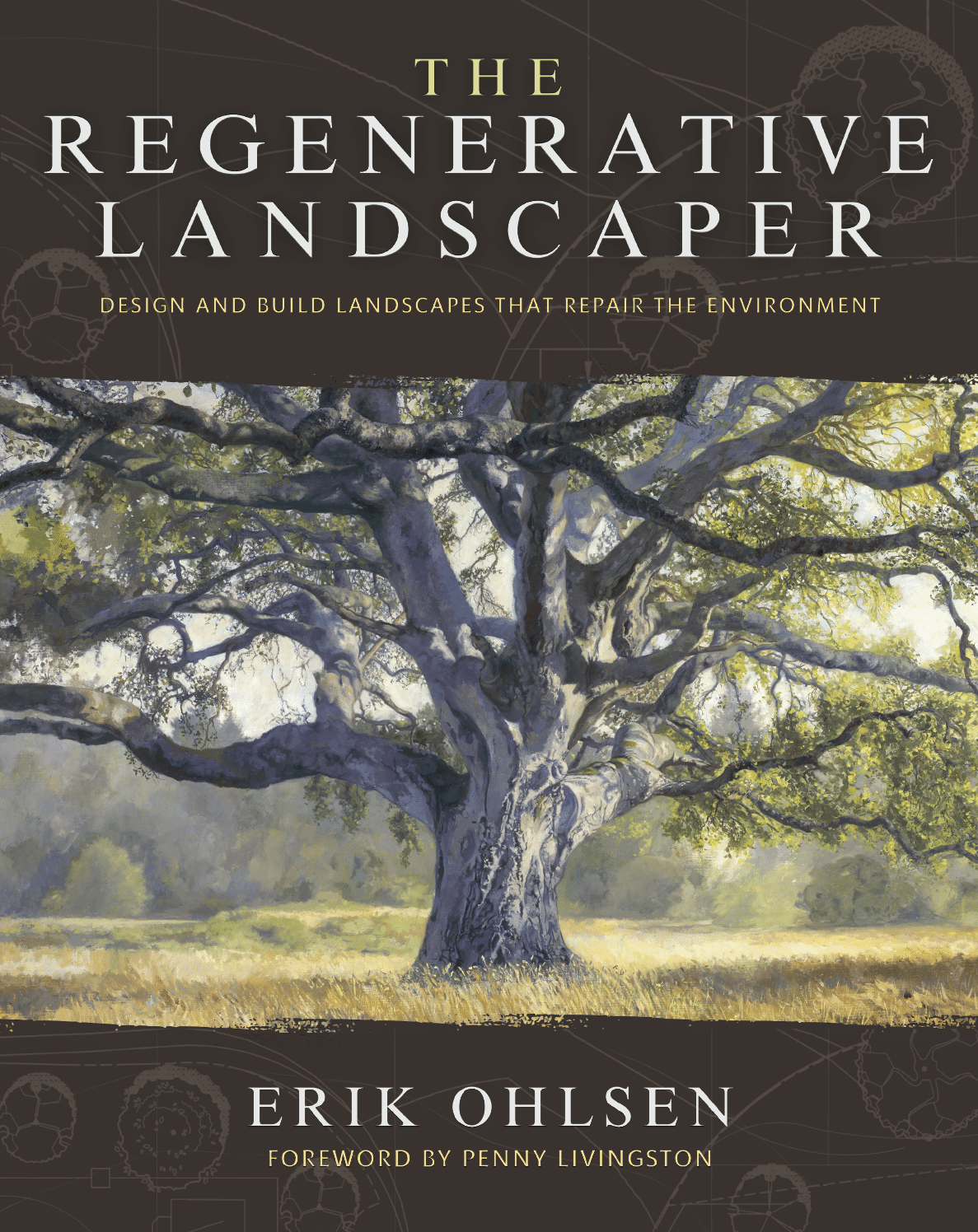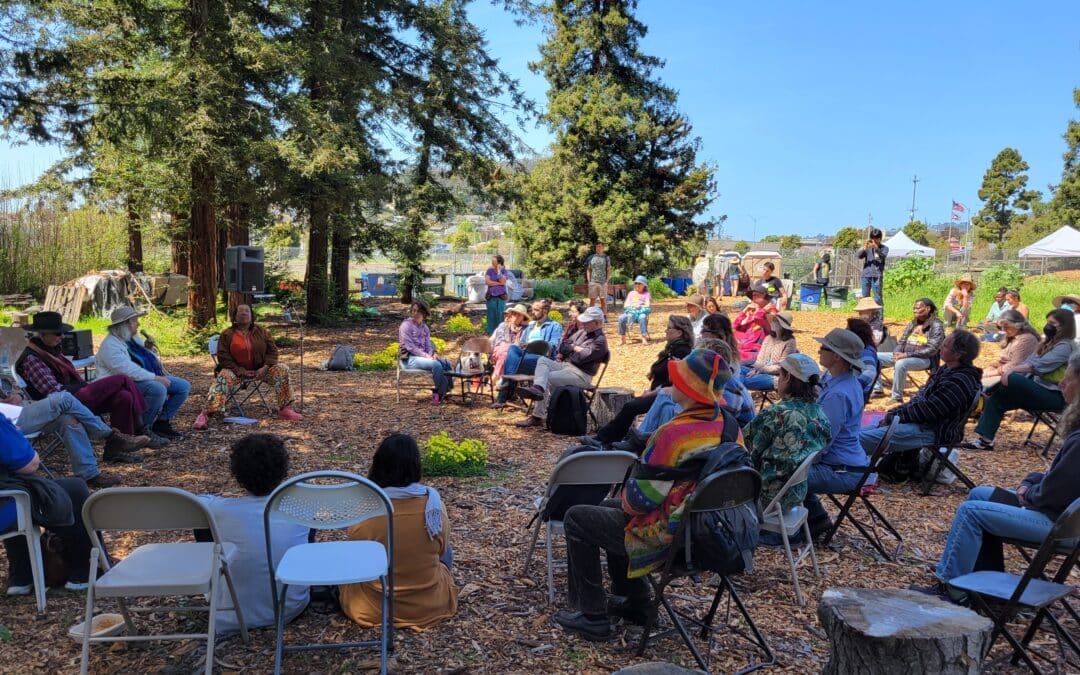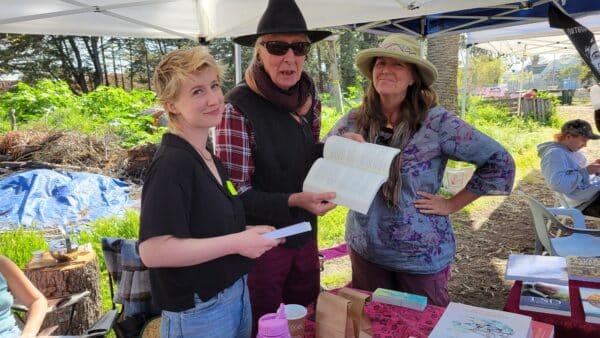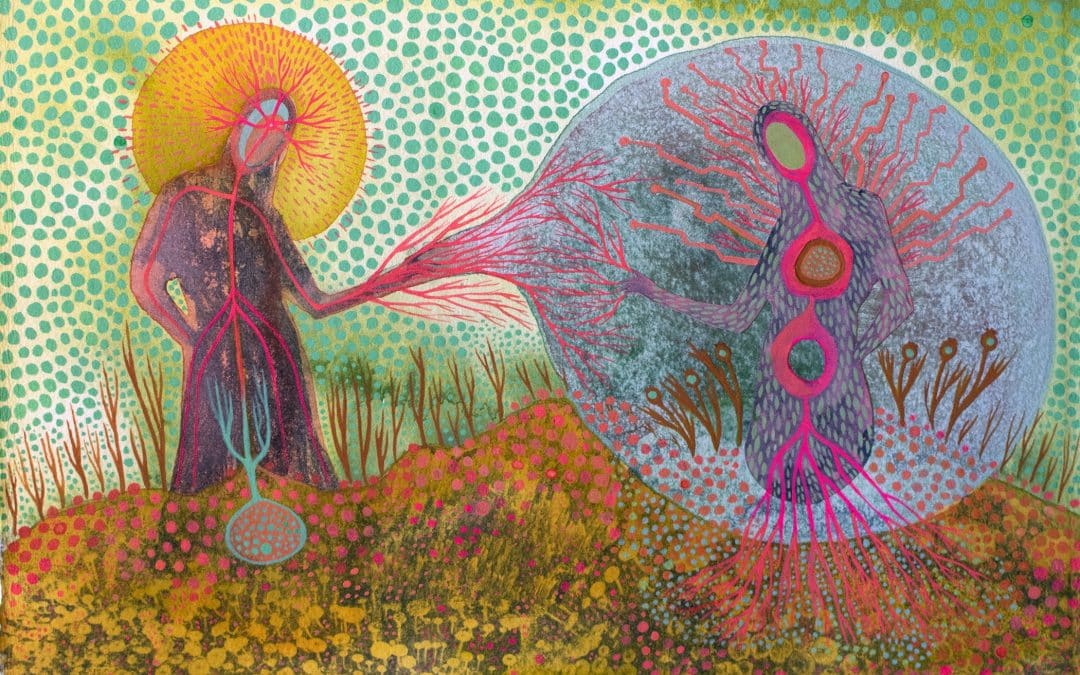
Opening to Grief: Tools for Moving through Hard Times
This moment is heavy with grief—whether it be from the climate crisis, the conflict in Israel-Palestine, the war in Ukraine, or ongoing conflicts in the Congo, Sudan, Syria, and countless other crises.
Grief, defined as a deep sense of sorrow evoked by loss, is what we experience when something or someone we love dies, changes, or disappears. Although grief can feel challenging both emotionally and somatically, it is a state that ought not be pathologized in that it is a healthy response to losing something we love. Grief, in reminding us what we love, can also empower us to speak up against injustice, to gather in solidarity, and to nurture a world that supports life.
According to Martín Prechtel, author of The Smell of Rain on Dust: Grief and Praise, to open ourselves to grief is one of the greatest expressions of love and praise and performs a restorative, healing function when felt fully and expressed in that it honors what we miss, be it a person, a home, a way of life, or a country. He writes, “To truly and freely grieve as an entire people can revive an entire culture just as much as it can bring back to life an individual.”
We at Synergetic Press value centering conversations around openness, mutual care, and compassion towards one another in these trying times. We recognize that even though there are no easy solutions or paths to meet the complexities and challenges that humanity collectively faces, as Joana Macy shared, “the most radical thing that any of us can do at this time is to be fully present to what is happening in the world.” As such, we have provided a list of resources and tools for helping you to feel more deeply as well as care for yourself and others in this moment of collective grief and heartache.
Community Care, Resources, & Practices for Grief
Room for Grief by Reimagine & BACII – Hosted every third Thursday of the month, the Reimagine community opens its arms to those navigating loss with our Room for Grief sessions. Facilitated by volunteers, these peer-led, drop-in gatherings are for you, whether you’re looking to learn about grief or seeking support in your journey. We leverage art, creativity, and prompts to foster conversation and introspection. Designed for adults across generations, Room for Grief is your safe space when you need it.
The GEN Grief Toolkit by Camille Sapara Barton – Embodiment tools and rituals to support grief work in community
Across Lines: Grief. with Bayo Akomolafe, Professor Sa’ed Atshan, and Cecilie Surasky – Starting from the premise that all people belong and all lives are grievable, the speakers will explore how honoring each other’s grief may allow us to reclaim each other’s humanity and perhaps shed light on a path forward to belonging in Israel-Palestine, for Muslims, Jews, and Christians, and for all people around the world. Bayo, Sa’ed, and Cecilie will journey into what it might be like to glimpse at the world through tears: what visions are possible when we postpone the compulsion to see everything clearly?
Books on Grief and Loss
Tending Grief: Embodied Rituals for Holding Our Sorrow and Growing Cultures of Care in Community by Camille Sapara Barton
An embodied guide to being with grief individually and in community—practical exercises, decolonized rituals, and Earth-based medicines for healing and processing loss
The Smell of Rain on Dust: Grief and Praise by Martín Prechtel
Inspiring hope, solace, and courage in living through our losses, author Martín Prechtel, trained in the Tzutujil Maya shamanic tradition, shares profound insights on the relationship between grief and praise in our culture–how the inability that many of us have to grieve and weep properly for the dead is deeply linked with the inability to give praise for living.
World as Lover, World as Self by Joanna Macy
An enduring classic of the ecology movement by the founder of the Work That Reconnects, now more timely than ever. Humanity is in an existential crisis. Facing the magnitude of our global situation as individuals leaves us feeling alone, disempowered, and despairing. Who better to listen to for wisdom and solace than Joanna Macy, one of the originators of modern environmentalism, whose life’s work has been to hear and heal our pain for the planet?
The Wild Edge of Sorrow: Rituals of Renewal and the Sacred Work of Grief by Francis Weller
Noted psychotherapist Francis Weller provides an essential guide for navigating the deep waters of sorrow and loss in this lyrical yet practical handbook for mastering the art of grieving. Describing how Western patterns of amnesia and anesthesia affect our capacity to cope with personal and collective sorrows, Weller reveals the new vitality we may encounter when we welcome, rather than fear, the pain of loss. Through moving personal stories, poetry, and insightful reflections he leads us into the central energy of sorrow, and to the profound healing and heightened communion with each other and our planet that reside alongside it.
Rebellious Mourning: The Collective Work of Grief edited by Cindy Milstein
We can bear almost anything when it is worked through collectively. Grief is generally thought of as something personal and insular, but when we publicly share loss and pain, we lessen the power of the forces that debilitate us, while at the same time building the humane social practices that alleviate suffering and improve quality of life for everyone. Addressing tragedies from Fukushima to Palestine, incarceration to eviction, AIDS crises to border crossings, and racism to rape, the intimate yet tenacious writing in this volume shows that mourning can pry open spaces of contestation and reconstruction, empathy and solidarity. With contributions from Claudia Rankine, Sarah Schulman, David Wojnarowicz, Leanne Betasamosake Simpson, David Gilbert, and nineteen others.
Waking Up to the Dark: The Black Madonna’s Gospel for An Age of Extinction and Collapse by Clark Strand
Is darkness synonymous with ignorance and evil? Or is it the original matrix from which all life emerges, and the Mother to whom it returns? Higher and higher levels of artificial illumination have suppressed our contact with the numinous since the Industrial Revolution, with dire consequences for society, our planetary ecology, and our souls. This mystical testament weaves together paleobiology, memoir, history, science, and spiritual archaeology to lead readers back into the lost mysteries of the dark.
Organizations You Can Support (Grief and Love in Action)
When contributing to humanitarian efforts in Israel-Palestine or elsewhere, make sure to exercise caution to avoid donating to fraudulent organizations. The Federal Trade Commission recommends researching charities by adding terms like “complaint,” “review,” “rating” and “scam” to their names in your search to identify any potential red flags. Given the abundance of misinformation on social media about the Israel-Hamas conflict, it is crucial to ensure that your donations go to legitimate and effective organizations.
- Doctors without Borders/Médecins Sans Frontières (MSF) – an organization that provides medical assistance to people affected by conflict, epidemics, disasters, or exclusion from healthcare. Their teams are made up of tens of thousands of health professionals, logistic and administrative staff – most of them hired locally, guided by medical ethics and the principles of impartiality, independence and neutrality.
- The Palestinian Children’s Relief Fund – an organization that provides free medical care to thousands of injured and ill children yearly who lack local access to care within the local health care system. Over the years, they’ve sent over 2,000 affected children abroad for free medical care, sent thousands of international doctors and nurses to provide tens of thousands of children free medical care in local hospitals, and provided tens of thousands of children humanitarian aid and support they otherwise would not get.
- The International Rescue Committee – a nonprofit organization that helps people affected by humanitarian crises—including the climate crisis—to survive, recover and rebuild their lives.
Artwork credit: “Receptor” 2021 by Ashley Blanton. Follow her work here: https://www.instagram.com/faint.as.fog/

